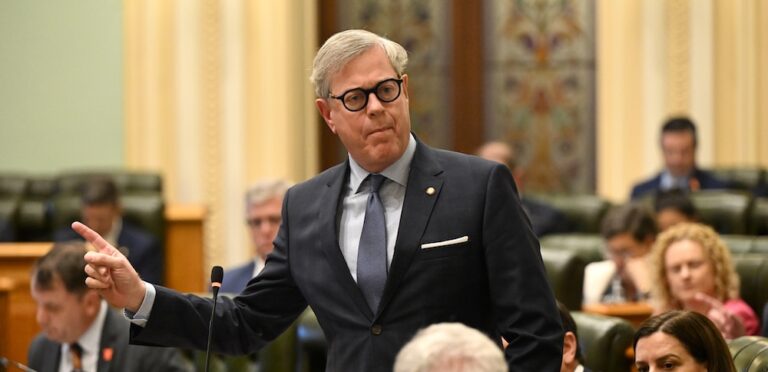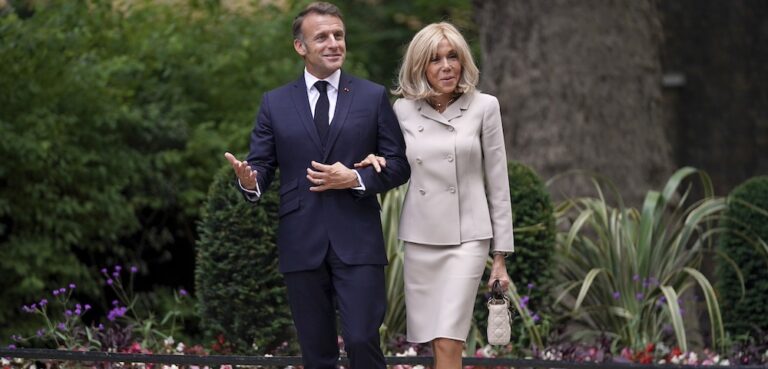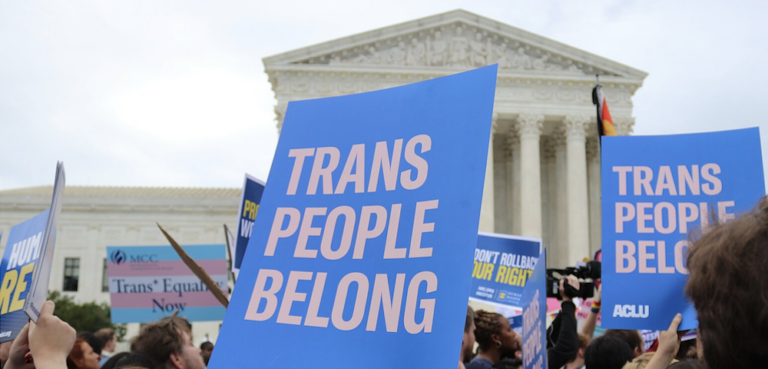
Australian Activists Wait & Watch Impact of UK Court’s Anti-Trans Ruling

Keira Bell was 15 when they were referred to Britain’s Gender Identity Development Service, run by the Tavistock and Portman NHS Foundation Trust. This followed “a highly traumatic childhood” in which they “began actively to question her gender identity”.
At age 16, Keira commenced puberty blockers, beginning testosterone at age 17, three years later, Keira underwent a double mastectomy.
However, Bell would later decided to “de-transition”, and eventually take legal action against Britain’s Gender Identity Development Service.
England’s High Court ultimately ruled that children under the age of 16 were unable to understand the consequences of their decisions and, as such, were unlikely to be able to give informed consent to treatment such as puberty blockers.
Activists believe the ruling will continue to negatively impact the health and wellbeing of trans and gender diverse children for years to come.
Detransition Is Rare
Recent studies have shown that experiences like Bell’s are reported in less than 10 percent of transgender and gender diverse people.
But as transgender activist and former Queensland Greens member Bridget Clinch, told Star Observer “most people who de-transition, aren’t doing it because their transness just disappeared, they de-transition because of stigma, discrimination, mistreatment.”
“In Australia they seem to take on the medical opinions pretty well, It’s weird that the UK court would go against all of that.” But Clinch believes “the UK case was aided by “a pretty concerted effort from conservatives, to erode trans rights.”
“The courts in the UK took the TERF arguments on face value. Which is strange because they are contrary to what the medical community says. There is the coalition of anti-trans people who have all teamed up – you have churches, the hard-core alt right and then you have people claiming they are feminists- all on side, which generally doesn’t happen, but they have found common ground in hating Trans people.”
Checks and Balances In Australia
“Currently in Australia, we are as about as good as it is going to get in terms of looking at whether or not a child is Gillick competent, we also look at whether or not there is a dispute between parents and the opinion of the treating psychiatrist- as well as counsellors and a whole team.”
“Most of it is because the authority for this has historically also been from the family courts,” Clinch explains, that “if a state has health administration which goes a bit conservative or hesitant, it will be overruled by the Federal court decisions.”
In Clinch’s experience there also tends to be a misunderstanding that you can proceed with treatment without any checks and balances.
‘The reality is that it takes several appointments, an education process around understanding what all the medical treatments mean and even before a kid starts any of these things, there is so much consideration that goes on. That’s why the rates of de-transitioning are so low.”
Clinch points out that medical experts are bound by media clauses and policies- making it much harder for them to engage with and use media platforms. Then it is for a “bunch of people with an axe to grind and a hatred of trans people.”
Landmark Order In 2017 Protected Trans Children
In contrast to the UK case, the 2017 ruling in Re Kelvin in Australia for the first time allowed transgender and gender diverse children access to‘ ‘Stage 2’ oestrogen or testosterone treatment without the involvement of Family Courts.
But as the UK case proves, even good laws, can easily be re-written,
During Re Kelvin, lawyer Rachell Davey acted as special council on behalf of one of the interveners. Davey was able to confirm that because of the ruling, it is “now unlikely that children in the UK under the age of 16 will ever be able to consent to stage two treatment. Even if all parties were in agreement, a court authorization will be a necessary requirement of stage 2 treatments.”
“It was Bell’s belief that there should have been other steps before commencing stage 2 treatments. This is important,” Davey said, adding, “It’s a significant step backward for the position taken by UK, as it is the same position previously held by Australia prior to Re Kelvin.”
“Everything changed because of Re Kelvin in Australia and fortunately- I say from my perspective as a lawyer who was involved in these cases beforehand. Before Re Kelvin, I acted on behalf of a number of families who wanted to make that application to court. In my experience those cases were all approved. I think everyone appreciated that it was another unnecessary burden and time-consuming step for families and children.”
“‘The QFL case has certainly changed the law in the UK, its implications in Australia are yet to be seen, given that RE Kelvin is relatively recent. That’s not to say that there won’t be a case in the future where the decision in Re Kelvin is reconsidered or contested.”
Davey warns that the UK case “will force families that are caring for children to go through the unnecessary step of going to court, forcing them to go through unnecessary burden and distress.”
For now though- Sally Goldner AM, Transgender Victoria media representative says that “Trans and gender diverse communities in Australia can get some degree of reassurance and affirmation knowing that we do have a level of protection in place that will hopefully prevent things from going as astray as they did in the UK.”
Anti-Trans Rhetoric On The Rise
“Australian processes have proven themselves over time. The fact they went through court cases in 2013 and 2017, stood up to robust review, and managed to arrive at a better place because of all of that- we now have the precedent but also good processes within the medical practice. Both are really important.”
Reiterating Clinch’s early remarks, Goldner adds we should “acknowledge that seeing these things happen is distressing for trans and gender diverse people and families here, but that we also need to acknowledge the grip and influence that radical feminists have in the UK”.
“We feel very strongly for our trans and gender diverse siblings in the UK having to endure these things.”
With anti-trans rhetoric, on the rise in countries around the world, fuelled by the likes of Tasmanian Senator Claire Chandler- known for her unrelenting attacks on trans inclusion in sport., Goldner finishes saying that while “radical feminists have some degree of influence in media and community services I believe there are a lot of grass roots people who see through it. A lot of people out there want and are trying do the right things to support trans and gender diverse people.”
“We have to take all this as a degree of reassurance, we obviously need to kee[ pushing on, for so long as our truth is put out there- the influence of radical feminists can be countered,” added Goldner.










